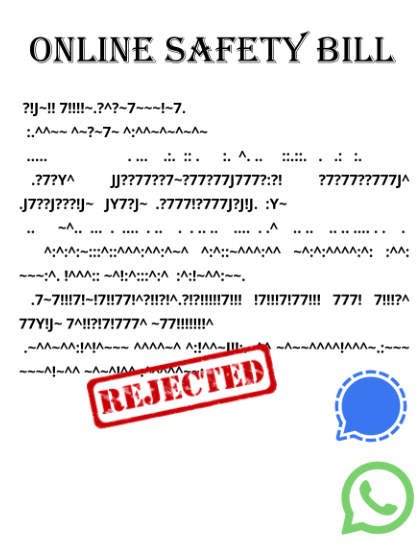The Battle Between Privacy and Security
The Spy Clause
UK government's Online Safety Bill includes a controversial section known as the Spy Clause, which would require messaging apps to scan every private message for instances of child abuse material, or CSAM. The government argues that this provision is necessary to protect children, but it has raised concerns about mass surveillance and the weakening of end-to-end encryption. Though the government denies that the bill will ban end-to-end encryption, there are fears among users that the government will increase the range of content to scan over time.
Messaging Apps Refuse to Comply with the Bill
The most popular messaging app that uses end-to-end encryption is Signal. The most popular messaging app that uses end-to-end encryption is Signal. Privacy experts like Edward Snowden also endorse people to use the app. Signal has refused to comply with the bill and the founder of Signal, said, they’ll rather choose to quit UK than providing a broken service. Signal believes privacy is a fundamental human right and an essential component of security. It argues that message scanning would erode encryption. It is actually impossible to develop a software that can scan messages while preserving privacy. Another popular messaging service, WhatsApp, owned by Meta and boasting over two billion users globally, also opposes the bill, with its head, Will Cathcart, affirming that end-to-end encryption safeguards people's right to communicate privately online. He also added that they will continue to oppose attempts around governments of the world seeking access into people’s private messages.

The Bill poses a serious threat to both privacy and free speech online. If this bill passes through, it could set a dangerous precedent for other countries to follow suit.
